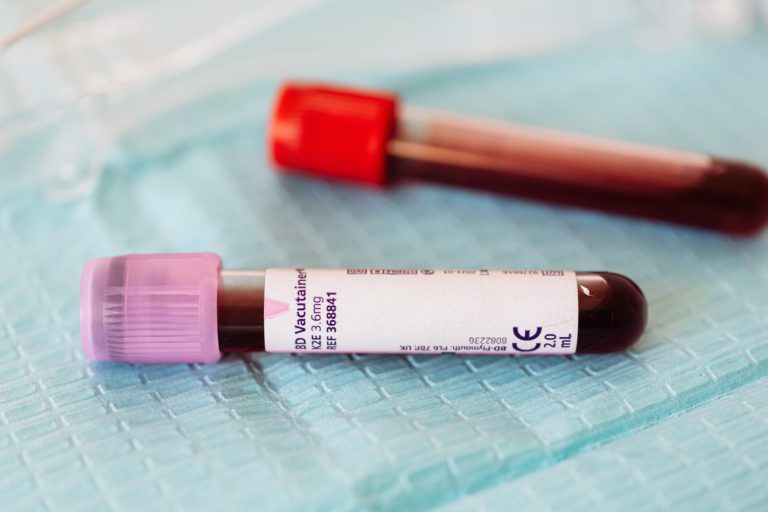
Tonsillitis is a common condition that affects people of all ages, causing inflammation and swelling of the tonsils. But is it contagious? Many people wonder whether they can catch tonsillitis from someone else, or if they’re at risk of spreading it to others. Understanding the contagiousness of tonsillitis is important for preventing the spread of the illness and staying healthy. In this guide, we’ll explore whether tonsillitis is contagious, how it spreads, and what you can do to protect yourself and others.
How Tonsillitis Spreads: A Closer Look at the Causes of Contagion
Tonsillitis is a contagious illness caused by a virus or bacteria that can spread through droplets released when an infected person coughs or sneezes. It can also spread through direct contact with an infected person or contaminated surface.
Common bacteria that cause tonsillitis include Streptococcus pyogenes, while the viruses that cause tonsillitis include the flu and Epstein-Barr virus.
To prevent the spread of tonsillitis, it’s important to
- Wash your hands frequently
- Cover your mouth and nose when coughing or sneezing
- Avoid close contact with sick individuals.
Seeking medical attention for diagnosis and treatment is important for preventing the spread of the illness to others.
The contagiousness of tonsillitis varies depending on the type of bacteria or virus causing it, the stage of the illness, and the overall health of the infected person. Taking precautions to prevent the spread of tonsillitis is important for maintaining good health.
Tonsiline Throat Gargle Mouthwash
Tonsiline Throat Gargle Mouthwash is a powerful formula designed to combat the bacteria and viruses that cause tonsillitis. Its active ingredients work to soothe the throat, reduce inflammation, and kill harmful microbes. Regular use of Tonsiline Throat Gargle Mouthwash not only provides relief from tonsillitis symptoms but also helps minimize the risk of spreading the infection to others.
Why Choose Tonsiline Throat Gargle Mouthwash?
Effective Relief: Tonsiline Throat Gargle Mouthwash provides rapid relief from sore throat and discomfort, allowing you to feel better quickly.
Preventive Care: By using Tonsiline regularly, you can reduce the chances of transmitting the infection to your loved ones, promoting a healthier environment at home.
Easy to Use: Tonsiline Throat Gargle Mouthwash comes with user-friendly instructions, making it convenient for anyone to use, ensuring proper oral hygiene.
Clinically Tested: This mouthwash is clinically tested and approved, ensuring its safety and efficacy in alleviating tonsillitis symptoms.
Our Recommendation:
If you or your loved ones are experiencing the discomfort of tonsillitis or want to prevent its spread, we highly recommend trying Tonsiline Throat Gargle Mouthwash. Not only does it provide relief from symptoms, but it also serves as a preventive measure, making it an essential addition to your oral care routine.
Click here to purchase Tonsiline Throat Gargle Mouthwash and experience the soothing relief for yourself.
Don’t let tonsillitis disrupt your life or the lives of those around you. Take action today with Tonsiline Throat Gargle Mouthwash and enjoy a healthier, more comfortable tomorrow.
The Role of Bacteria and Viruses in Tonsillitis Transmission
Tonsillitis can be caused by bacteria or viruses, and the way it spreads depends on the type of pathogen involved. The most common bacterial cause of tonsillitis is Streptococcus pyogenes, while viral causes include the flu and Epstein-Barr virus.
Bacterial tonsillitis: is highly contagious and can spread through airborne droplets and direct contact. It’s important to note that even after symptoms have resolved, an infected person can still be contagious for up to two weeks.
Viral tonsillitis: can also be highly contagious and spread through airborne droplets and direct contact. Practicing good hygiene habits such as washing your hands frequently, covering your mouth and nose when coughing or sneezing, and avoiding close contact with sick individuals can help reduce the risk of spreading tonsillitis.
Seeking medical attention for proper diagnosis and treatment is also important for preventing the spread of the illness to others.
Bionaze Oral Probiotic K12 for Sinus, Tonsil Stones, Bad Breath, Post Nasal Drip, Throat, Mouth, Teeth & Digestion
Bionaze Oral Probiotic K12 is a powerful probiotic supplement designed to target various oral health concerns, including sinus problems, tonsil stones, bad breath, post nasal drip, throat irritations, mouth issues, teeth problems, and digestion troubles. Packed with beneficial bacteria, this oral probiotic helps restore the natural balance of microflora in your throat and mouth, enhancing your body’s defense mechanisms against infections.
Why Choose Bionaze Oral Probiotic K12?
Combat Tonsillitis: By maintaining a healthy balance of oral bacteria, Bionaze Oral Probiotic K12 reduces the risk of bacterial infections, including those leading to tonsillitis.
Say Goodbye to Bad Breath: Bad breath often stems from oral bacteria imbalance. Bionaze Oral Probiotic K12 helps eliminate the root cause, ensuring fresh breath all day long.
Reduce Throat Irritation: If you’re prone to throat irritations, post nasal drip, or persistent cough, this probiotic supplement can significantly alleviate these discomforts.
Promote Digestive Health: A healthy mouth is linked to proper digestion. By promoting oral health, Bionaze Oral Probiotic K12 indirectly supports a well-functioning digestive system.
Natural and Safe: Bionaze Oral Probiotic K12 is made from natural ingredients and is free from artificial additives, making it a safe choice for the whole family.
Why We Recommend Them:
Don’t let tonsillitis and related oral health issues disrupt your life. Experience the transformative benefits of Bionaze Oral Probiotic K12 and say goodbye to discomfort.
Click here to make your purchase of Bionaze Oral Probiotic K12 today and say hello to a healthier, happier you!
Invest in your health and embrace a throat-friendly lifestyle with Bionaze Oral Probiotic K12.
Understanding the Different Types of Tonsillitis and Their Contagiousness

Tonsillitis can be classified into different types based on the cause and symptoms. The most common types include acute, chronic, and recurrent tonsillitis.
- Acute tonsillitis: is highly contagious and caused by a bacterial or viral infection.
Symptoms: include sore throat, fever, and difficulty swallowing.
- Chronic tonsillitis: is less contagious than acute tonsillitis, but can still spread through direct contact.
Symptoms: include persistent sore throat and bad breath.
- Recurrent tonsillitis: is a type of acute tonsillitis that occurs multiple times a year and is highly contagious.
To prevent the spread of tonsillitis, practice good hygiene habits like washing hands frequently and covering mouth and nose when coughing or sneezing. Seeking medical attention for proper diagnosis and treatment is also important.
Overall, the contagiousness of tonsillitis varies by type and overall health of the infected person. Take precautions to prevent the spread and seek medical attention if symptoms persist.
The Contagious Period of Tonsillitis: How Long Is It?
The contagious period of tonsillitis can vary depending on the type of infection and the overall health of the infected person.
- Acute tonsillitis caused by a viral infection is typically contagious for 7-10 days, while bacterial tonsillitis can remain contagious for up to 2 weeks or more.
- Chronic tonsillitis is less contagious than acute tonsillitis, but can still be spread through direct contact with an infected person.
- Recurrent tonsillitis is highly contagious during each episode, which may last for several days to a week.
To prevent the spread of tonsillitis, it’s important to practice good hygiene habits like washing hands frequently and covering mouth and nose when coughing or sneezing.
If you’re experiencing symptoms of tonsillitis, seek medical attention for proper diagnosis and treatment. Antibiotics may be prescribed for bacterial tonsillitis to reduce the duration of contagiousness and prevent the spread of the infection to others.
Remember, the contagious period of tonsillitis can vary depending on the type of infection and individual factors. Take precautions to prevent the spread of the illness and seek medical attention if symptoms persist or worsen.
The Symptoms of Contagious Tonsillitis: What to Watch For
Tonsillitis is a common illness caused by a viral or bacterial infection. Here are the most common symptoms to watch for:
- Sore throat
- Swollen tonsils
- Difficulty swallowing
- White or yellow patches on the tonsils
- Fever
- Headache
- Fatigue
- Stomach pain or nausea
- Swollen lymph nodes in the neck
Contagious tonsillitis can be spread through direct contact with an infected person or contaminated surfaces. If you suspect you have tonsillitis, take precautions to prevent the spread of the infection, such as washing your hands frequently and avoiding close contact with others.
Seek medical attention for proper diagnosis and treatment. Antibiotics may be prescribed for bacterial tonsillitis to reduce the duration of the infection and prevent the spread of the illness to others.
Remember, knowing the symptoms of contagious tonsillitis and taking precautions can help you recover faster and avoid infecting others.
Is Tonsillitis More Contagious in Children or Adults?

Tonsillitis is contagious and can affect anyone, regardless of age. However, children and adults may be at different levels of risk for contagion.
Children are more susceptible to contagious tonsillitis due to their developing immune systems and frequent exposure to other children in school or daycare. They may also have less hygiene awareness, which can increase the spread of the infection.
Adults, on the other hand, may be more prone to contagious tonsillitis if they have weakened immune systems or are exposed to infected individuals at work or in public places.
Regardless of age, it’s essential to seek medical attention if you or your child experience symptoms of tonsillitis. Treatment typically involves rest, hydration, and medications to relieve symptoms and prevent the spread of infection.
To reduce the risk of contagion, practice good hygiene, such as washing your hands frequently and covering your mouth and nose when coughing or sneezing.
Remember, while the risk of contagion may vary between children and adults, taking precautions and seeking prompt medical attention can help prevent the spread of tonsillitis and promote a quicker recovery.
Tonsillitis and Social Distancing: Tips for Preventing the Spread
Tonsillitis is highly contagious, and it’s crucial to take steps to prevent the spread of the infection, especially during times of pandemic and increased awareness of social distancing.
- Tonsillitis is highly contagious, so it’s crucial to prevent its spread during times of pandemic and increased awareness of social distancing.
- Stay home and avoid contact with others as much as possible if you or your child has symptoms of tonsillitis.
- Wear a mask and maintain at least six feet of distance from others when leaving the house.
- Wash your hands frequently with soap and water or use hand sanitizer when handwashing is not available.
- Cover your mouth and nose when coughing or sneezing and avoid sharing personal items.
- Keep your home and personal items clean and disinfected with disinfectant sprays or wipes.
Following these tips can prevent the spread of tonsillitis and promote a quicker recovery for yourself or your child. Remember, prevention is key, and taking precautions is always better than dealing with the consequences of a contagious illness.
BreathMD Tonsil Rinse for Natural Tonsil Stone Removal & Bad Breath Treatment
BreathMD Tonsil Rinse is specifically formulated to target tonsil stones and combat bad breath at its source. This powerful yet gentle solution works by breaking down and dissolving the stones, providing relief from discomfort and eliminating the root cause of bad breath.
Key Benefits:
- Natural Tonsil Stone Removal: BreathMD Tonsil Rinse effectively dissolves tonsil stones, providing quick relief from the discomfort they cause.
- Bad Breath Treatment: By eliminating tonsil stones, this rinse addresses the underlying cause of bad breath, leaving you with fresh, confidence-boosting breath.
- Gentle and Non-Irritating: BreathMD Tonsil Rinse is gentle on your throat and tonsils, making it suitable for regular use without causing any discomfort.
Why Choose BreathMD Tonsil Rinse?
Unlike harsh alternatives or invasive procedures, BreathMD Tonsil Rinse offers a safe, natural, and non-invasive way to tackle tonsil stones and bad breath. Its carefully crafted formula ensures effectiveness without compromising your oral health.
Our Recommendation:
Our team highly recommends BreathMD Tonsil Rinse for anyone seeking a reliable solution for natural tonsil stone removal and bad breath treatment. Countless users have reported significant improvements in their symptoms, leading to increased confidence and overall well-being.
Ready to Say Goodbye to Tonsil Stones and Bad Breath? Don’t let tonsil stones and bad breath hold you back any longer. Experience the transformative power of BreathMD Tonsil Rinse and rediscover the joy of fresh, confident breath.
Click here to order your BreathMD Tonsil Rinse now and embark on your journey towards a healthier, more confident you!
Treating Contagious Tonsillitis: Antibiotics, Home Remedies, and More
- Contagious tonsillitis can be treated with antibiotics prescribed by a doctor, which are typically taken for about 10 days. It is essential to complete the full course of antibiotics even if symptoms improve.
- Over-the-counter pain relievers such as acetaminophen or ibuprofen can alleviate pain and fever associated with tonsillitis.
- Gargling with warm salt water or using throat sprays can help soothe a sore throat.
- Drinking plenty of fluids, especially warm liquids like soup and tea, can help keep the throat moist and alleviate discomfort.
- Getting plenty of rest and avoiding strenuous activities can help the body fight off the infection.
- In severe cases, a doctor may recommend a tonsillectomy, which involves removing the tonsils surgically. This option is usually reserved for cases of chronic or recurrent tonsillitis.
- Remember to always follow your doctor’s advice and complete the full course of antibiotics to prevent the spread of the infection and promote a quicker recovery.
Preventing Tonsillitis Transmission: Best Practices for Good Health
- Practice good hygiene by washing hands frequently, especially before eating and after coughing or sneezing.
- Avoid close contact with people who have tonsillitis or other contagious illnesses.
- Cover your mouth and nose with a tissue or your elbow when coughing or sneezing, and dispose of tissues properly.
- Avoid sharing personal items like utensils, drinking glasses, or toothbrushes with others, especially if you or someone else is sick.
- Maintain a healthy lifestyle with regular exercise, healthy diet, and adequate sleep to boost immunity and lower the risk of infections.
- Consider getting vaccinated against certain types of bacterial infections that can cause tonsillitis, such as pneumococcal and meningococcal vaccines.
- If you or someone in your household has tonsillitis, follow precautions like staying home from school or work until the contagious period has passed, and avoid close contact with others to prevent the spread of infection.
When to See a Doctor for Contagious Tonsillitis Symptoms
- If you or someone you know has symptoms of contagious tonsillitis, such as sore throat, swollen tonsils, fever, headache, or difficulty swallowing, it’s important to seek medical attention.
- Tonsillitis can be caused by bacterial or viral infections, and some cases may require specific treatments like antibiotics or antiviral medications.
- Your doctor can perform a physical exam, ask about your symptoms and medical history, and perform diagnostic tests like a throat culture or blood test to determine the cause of your tonsillitis and recommend appropriate treatment.
- In some cases, tonsillitis can lead to complications like abscesses, ear infections, rheumatic fever, or kidney inflammation, which may require more aggressive treatment and monitoring by a healthcare professional.
- If you have severe or persistent symptoms, difficulty breathing or swallowing, or other concerning signs like neck stiffness, rash, or abdominal pain, seek emergency medical attention immediately.

Affiliate Disclosure: Please note that we may earn a commission from Amazon if you make a purchase through the affiliate links provided on this page. This comes at no extra cost to you. We recommend these products because we believe in their quality and usefulness to our readers. Your support through these links helps us continue to provide valuable content on dental health and wellness. Thank you for your trust and support.










